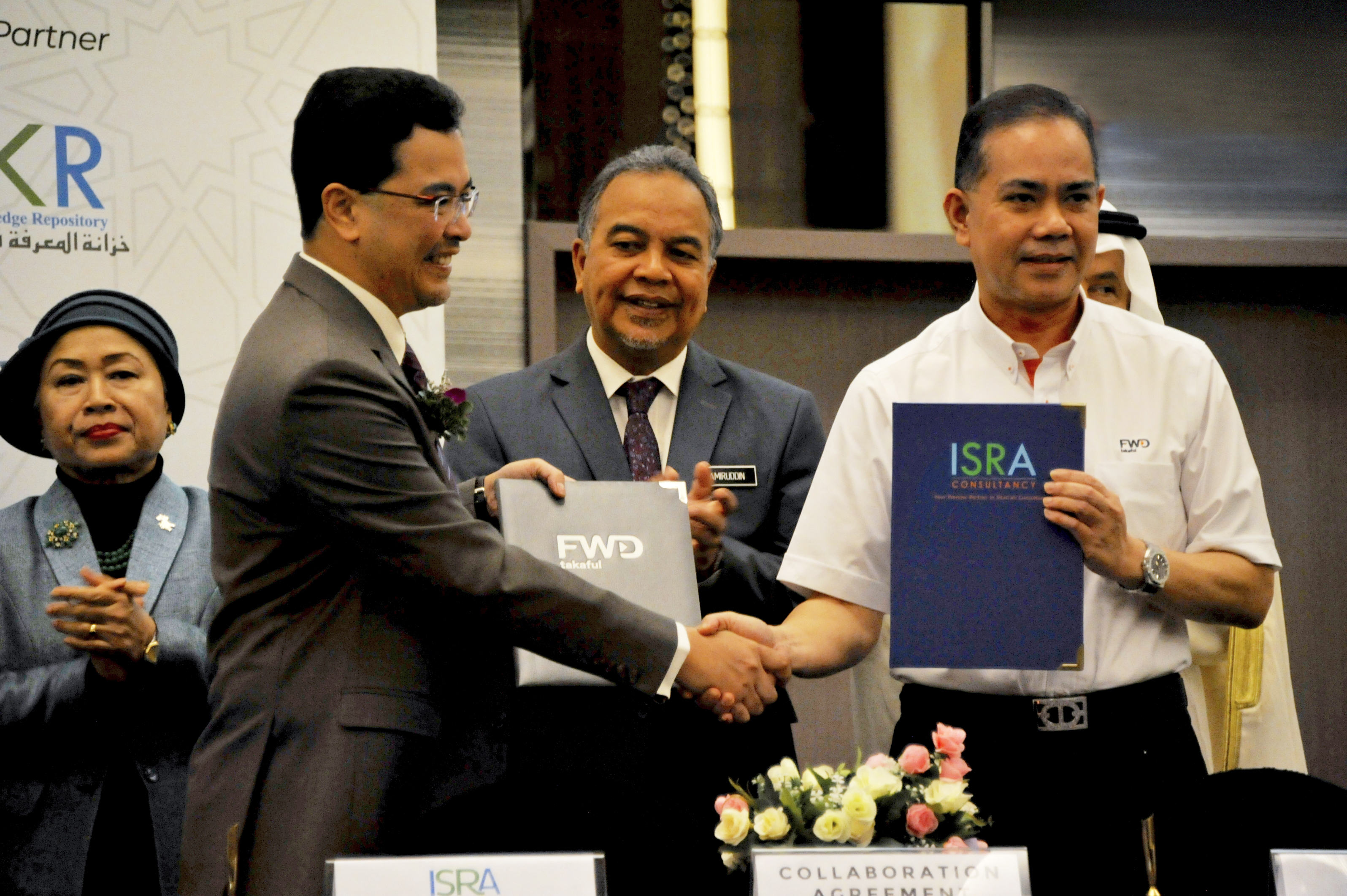Academics called on to devise model that takes takaful to Malaysian low earners
KUALA LUMPUR - A new takaful product for Malaysian low-income earners, tipped for release next year, could feature elements of waqf and zakat, according to the academic charged with developing its model.
The consulting arm of the International Shariah Research Academy for Islamic Finance (ISRA) in Kuala Lumpur will collaborate with insurer FWD Takaful in a 1 million ringgit ($239,000) project to take Islamic insurance to the bottom 40% of earners in Malaysia, known as the B40.
“We will try our best to deliver a solution that will bring takaful to the B40 at last,” ISRA Consultancy’s chief executive, Professor Ashraf bin Md Hashim, told Salaam Gateway at the launch of the collaboration on Thursday (October 31).
“We need to connect the dots between FWD, the customer and maybe other organs of society like waqf and zakat,” said Prof Ashraf.
“The challenge for us is to create a win-win solution for everybody.”
The takaful industry has been slow to reach out to the B40, which is currently defined as people who earn less than 3,000 ringgit ($717) per month.
Ordinarily, the products it offers are uniform across all categories of wage earners, making it difficult for the lowest to afford them. But this appears to be changing.
“I think they are beginning to start. In Malaysia, we have this value-based intermediation (VBI) whereby institutions need to have a programme to make the non-bankable bankable. I think the process has started and hopefully we will see the fruits in the future,” said Prof Ashraf.
The advance of fintech has been one factor pushing Islamic financial institutions to be more inclusive, by giving more people access to their products.
The government has been another, through initiatives such as this year’s MySalam social protection scheme which gives 4.3 million Malaysians takaful coverage in the event of critical illness and hospitalisation.
“This is a good approach by the government to bring people in through financial inclusion. There are ways and means for companies to be inclusive and still make a profit,” said Prof Ashraf.
“We need to find solutions; I think there are solutions out there,” he added.
DIGITAL FIRST FOR FINANCIAL INCLUSION
Formerly known as HSBC Amanah Takaful, a 49% stake in the Malaysian insurer was acquired by Hong Kong’s FWD Group in March, leading to a change of name to FWD Takaful.
Since then it has added digital and agency channels to its traditional bank distribution.
Now it hopes to develop a new model to become the first commercial takaful insurer to cater for a vast legion of low earners, most of whom are Muslim.
The average national salary was 3,087 ringgit ($738) last year, according to the Department of Statistics Malaysia. To reach its target of penetrating 15% of the country’s takaful market in the next five years, FWD will need to bring onboard large numbers of low earners by offering them specific products they can afford, said its chief executive.
“B40 doesn’t mean that they are the beggars on the road. Even some of my office staff are B40, just because their income is low. But these are the people who need takaful protection the most,” Salim Majid Zain told Salaam Gateway.
“One of our strategies is to come up with products for them. Before we can do this, we have to come up with a new model, which ISRA will study. Only with this B40 model can we go to market with our strategy.”
FWD Group, owned by Richard Li, son of Hong Kong tycoon Li Ka-shing, is known for its technology-first approach to insurance to increase accessibility for customers. In Hong Kong, for example, it runs a completely cashless operation. In Singapore its business is entirely digital.
It is likely then that when ISRA Consulting’s model is published next June, it will incorporate a smartphone app that will allow customers to pay in small quantities of money as and when they can afford it.
“If you have a ringgit available you can just pay it in, or if you have 100 ringgit, you can do that as well. There’s no takaful product available today that allows you to buy like that,” said Salim.
INSURER-SCHOLARS COLLABORATION
In addition to developing a model, Prof Ashraf’s ISRA team has been charged with making sure that FWD’s staff are well-versed in Shariah.
It will also publish a booklet that will help Malaysians understand the difference between conventional insurance and takaful.
They will be able to call on some 30 researchers at the academy, as well as FWD’s takaful experts, along with third-parties in other fields of Islamic finance.
“We have our own expertise, but we also need to work together with all these organisations, like waqf organisations and zakat organisations,” said Prof Ashraf.
“There are lots of studies to be done for this project, and lots of interactions to be made.”
(Reporting by Richard Whitehead, Editing by Emmy Abdul Alim emmy.abdulalim@salaamgateway.com)
© SalaamGateway.com 2019 All Rights Reserved
